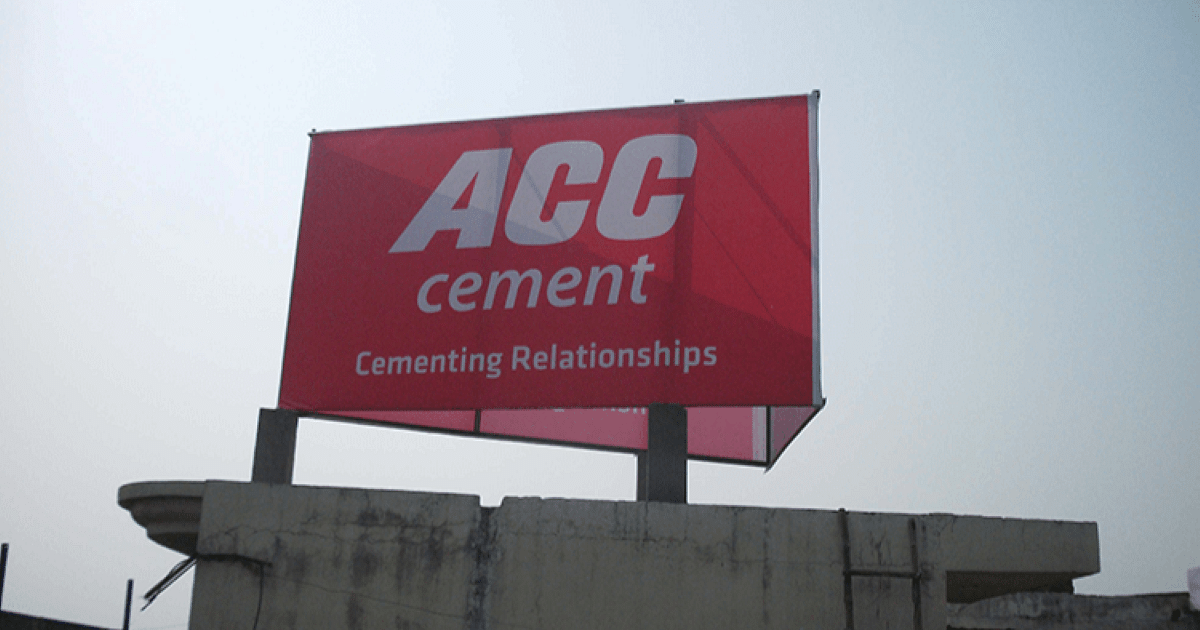[ad_1]
The Adani Group has completed the acquisition of ACC Ltd., via Ambuja Cements Ltd., to begin the next chapter in the history of India’s oldest cement company in continuous operation.
On Aug. 1, 1936, 10 Indian cement makers came together to set up The Associated Cement Companies Ltd. under the chairmanship of Sir Nowroji B. Saklatvala and the likes of J.R.D. Tata and Ambalal Sarabhai on the board. F.E. Dinshaw, the man recognised as the founder of the amalgam, died in January 1936–just months before the company was incorporated. In 1947, the company set up India’s first indigenous cement plant at Chaibasa, Bihar.
Since then, ACC has moulded itself to cater to the wants of the nation, giving shape to some of the most-recognisable infrastructure projects in India–from the Bhakra Nangal Dam in 1960 to the Mumbai-Pune Expressway at the turn of the century.
That 86-year history, however, hasn’t been without its fair share of upheavals.
‘A Controversial Issue’
In 1988, Associated Cement Companies found itself in the midst of a messy public drama involving some of the biggest names in India Inc.’s history–Bombay Dyeing’s Nusli Wadia, then ACC Chairman Nani Palkhivala, then ACC Deputy Chairman Pallonji Shapoorji Mistry, and Darbari Seth, then chairman of Tata Chemicals.
In March of that year, ACC–seeking to expand its small capital base of Rs 40.84 crore–offered employees and shareholders a convertible debenture issue worth Rs 26.81 crore.
A convertible debenture is a type of long-term debt issued by a company that can be converted into shares of equity stock after a specified period.
But by April, it looked as if the issue would be undersubscribed, and so the “big boys”–the Wadias and the Tatas–were roped in. They agreed to buy in, only to have their applications turned down by the Palkhivala-led ACC board in early May. The reason cited was that all were benami.
“A few large applications aggregating to Rs 24.5 crore, some on shareholders’ forms and some on renouncee forms, were actually made for the benefit of persons or companies different from and other than the applicants,” ACC had said in a statement.
Wadia maintained that “acquisition of control of ACC was not a motivating consideration at all. In fact, it is a canard raised as an afterthought”. Tata’s Seth, too, categorically said that “control was not the motivating consideration or indeed the dominant consideration”.
“The company (ACC) is a jewel that could rightly adorn any marauder’s crown,” India Today said in an article (‘A Controversial Issue’) that featured in its issue dated June 15, 1988. That, however, wasn’t to be. Until 2005.
The Holcim Years
In January 2005, Switzerland’s Holcim Ltd.–then the largest cement producer in the world–agreed to acquire a 67% equity stake in Ambuja Cement India Ltd., which at the time held 13.8% equity in ACC.
The $800-million deal was the biggest foreign direct investment in India’s cement sector.
Holcim simultaneously made an open offer to ACC shareholders–through Holdcem Cements Pvt. and Ambuja Cement India–to acquire a majority stake in ACC. Subsequently, Ambuja Cement India’s shareholding in ACC increased to 34.69%. It’s worth mentioning here that Ambuja Cement India purchased its 13.8% stake in ACC from Tata Group in three tranches between 1999 and 2001.
On Sept. 1, 2006, The Associated Cement Companies Ltd. was officially renamed to ACC Ltd.
Since then, however, ACC’s performance has been lacklustre at best. In the past decade, the company has played second fiddle to Ambuja Cements and lagged market leader UltraTech Cement Ltd. by a wide margin.
Sample this:
-
At Rs 16,151 crore, ACC’s total revenue from operations in fiscal 2021 was less than UltraTech’s revenue of Rs 19,085 crore in 2011-12.
-
ACC’s shares have gained 88% in the past 10 years compared to a 339% rise in UltraTech Cement’s stock.
-
ACC trades at 24 times its one-year forward price-to-earnings ratio, a discount to UltraTech Cement’s 28 times.
No wonder that when Holcim decided to sell its India business, suitors of all shapes and sizes swooped in.
Enter Adani
In April this year, Bloomberg reported that Holcim was considering a potential sale of its India businesses, including Ambuja Cements. The move was seen as part of a global strategy to focus on key markets. The Swiss firm reportedly held early-stage negotiations with JSW and Adani Group, and at one point even ArcelorMittal and UltraTech Cement were seen as likely suitors.
On May 15, however, Holcim agreed to sell its 63% stake in Ambuja Cements to the Ahmedabad-based conglomerate. As part of the deal, Adani inherited Ambuja’s controlling stake in ACC. On Aug. 19, Adani Group made a $3.9-billion open offer to buy the remaining shares of the cement makers.
In one fell swoop, Adani became the second-largest cement maker in India.
“What makes cement an exciting business is the headroom for growth in India, which exceeds that of every other country well beyond 2050,” Adani Group Chairman Gautam Adani said in a statement after completion of the open offer on Friday.
Both Ambuja and ACC will benefit from synergies with the integrated Adani infrastructure platform, especially in the areas of raw material, renewable power and logistics, the statement read.
Also Read: Gautam Adani’s Son Karan Adani To Oversee Cement Business
“It is these adjacencies that eventually drive competitive economics,” Adani said. “All of these dimensions put us on track to become the largest and most efficient manufacturer of cement by no later than 2030.”
Disclaimer: Adani Enterprises is in the process of acquiring a 49% stake in Quintillion Business Media Ltd., the owner of BQ Prime.
[ad_2]
Image and article originally from www.bqprime.com. Read the original article here.

